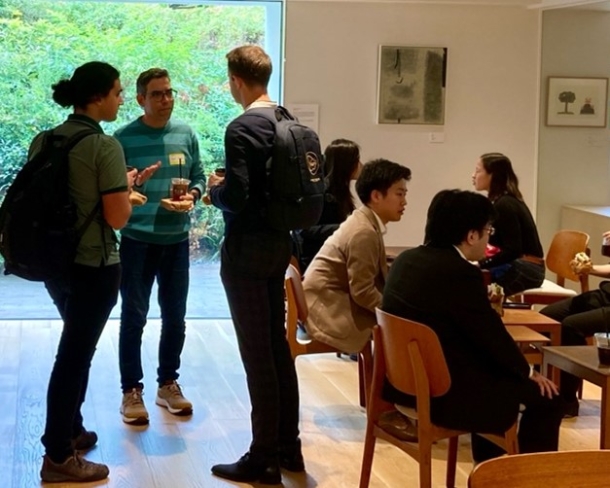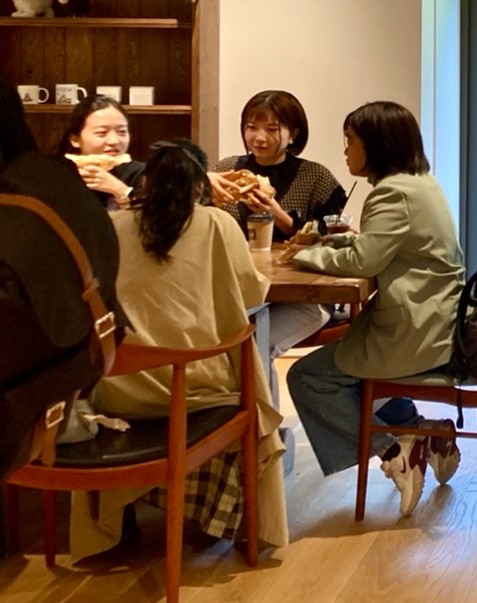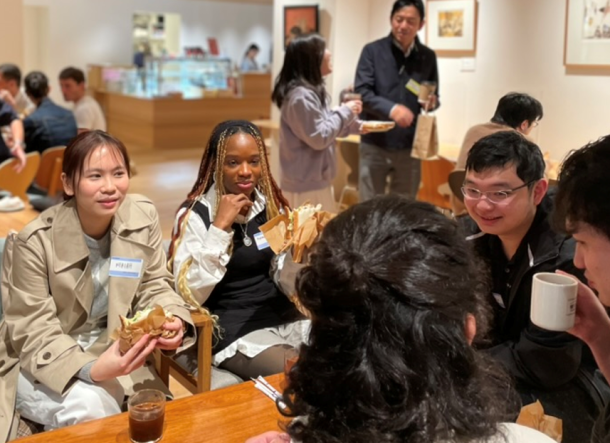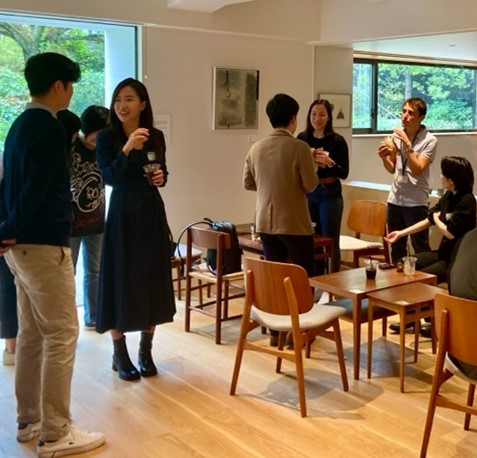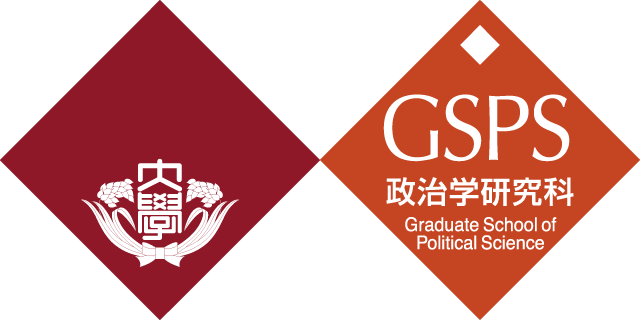- Research and Education
- Graduate Student Training
Graduate Student Training
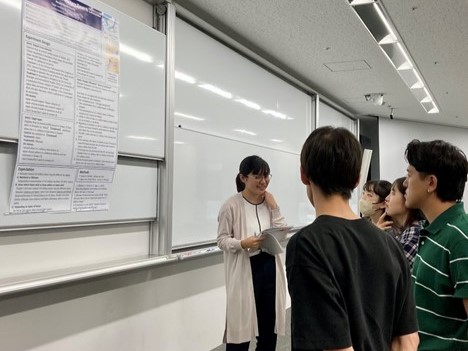
Degree Programs
We offer bilingual programs at the Graduate School of Political Science such that graduate students may complete coursework and other requirements for their degree in English or Japanese. In both English and Japanese, we award M.A. and Ph.D. degrees in Political Science. In Japanese, we also award M.A. degrees in Journalism and Global Public Policy.
Our two-year master’s degree program in political science requires that students complete coursework, including three foundational courses in political methodology, and submit and defend a master’s thesis. Throughout their degree, students attend a weekly seminar of their advisor(s). They also have opportunities to receive guidance from sub-advisors and other faculty members.
The doctoral degree at the GSPS is a three- to six-year long program of research supervision. Coursework is optional but not required. Doctoral students usually attend the weekly seminars of their advisors. Before forming their dissertation committee, doctoral students must pass an analytical methods exam in their first year and qualifying exams in their major and minor subfields in their second year. A committee of three faculty, including one outside member, advises and evaluates the doctoral dissertation.
Educational Opportunities
The GSPS supplements the regular coursework with additional classes, workshops, and summer school opportunities for graduate students to expose them to the latest research trends and to further develop their skills in political methodology. While the offerings vary from year to year, they typically allow Waseda students to learn from experts from around the world. An example is the 2024 summer intensive seminar on causal inference led by top political methodologist Ryan Moore of American University. Another example is the 2021 online course on the “Far Right Today,” given by world renowned expert Professor Cas Mudde of Georgia State University for Waseda students. In the summer of 2017, four professors from Stanford University offered an intensive course and symposium on international relations at Waseda University, which was followed up in the summer of 2019 by an intensive course in the comparative politics field given by three other professors from Stanford University. Also, Waseda University has hosted the Essex summer school at Waseda, which allows students to take courses in political methodology, such as maximum likelihood, duration analysis, multilevel analysis, text analysis etc.

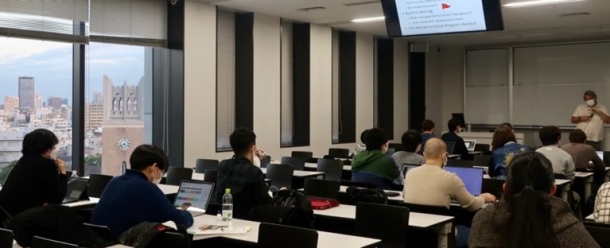
Graduate Student Publications
We encourage our students to publish their research, solo-authored or co-authored with a faculty member. Some recent solo-authored examples include:
● Nordström, Robert. 2024. The effects of uncontested elections on legislative speechmaking: An analysis of legislative performance in Japan’s prefectural assemblies. Electoral Studies.
● Kikuchi, Masanori. 2023. How does war affect cultural tolerance? Evidence from concert programs, 1900–60. Journal of Peace Research.
● Kobayashi, Takuto. 2023. Social Equality and the Conditional Justifiability of Political Inequality. Politics, Philosophy & Economics.
● Asano, Rui. 2023. Does peacekeeping by civilians work? Reducing armed violence without armed force. Japanese Journal of Political Science.
● Oshitani, Ken. 2022. Contractualism and the Moral Point of View. Ethical Theory and Moral Practice.
● Benasaglio Berlucchi, Antonio. 2021. Populism without host ideologies: A new home for voters with exclusionary attitudes in Italy’s Five Star Movement? Party Politics.
● Zhang, Ruosui. 2020. To suspend or not to suspend: a cost-benefit analysis of three Chinese mega-projects in Myanmar. The Pacific Review.
Research Assistantships and Teaching Assistantships
Research and teaching assistantships are forms of employment that give graduate students valuable professional experience. Graduate students may choose to work as research or teaching assistants while they are enrolled in the doctoral program, but employment is not required nor guaranteed. These positions are established on a case by-case basis between faculty members and graduate students through a short-term contract of employment. Working hours and pay strictly follow university regulations. According to Waseda University rules, students in these positions must work less than 20 hours per week in total.
Academic Professional Development
In addition to our substantive curriculum, we also offer short courses in academic professional development. These courses develop practical skills in various areas, such as designing an academic CV and website, giving an effective presentation, or applying for research grants. These courses also discuss the best practices for submitting a manuscript to a journal and for serving as a peer-reviewer.
We also host the Doctoral Research Lunchtime Workshop that allows doctoral students to give a presentation and discuss their research results in front of graduate students and faculty members from outside their own subfield, with the aim of improving their research results and increasing their chances of success in conference presentations and paper submissions.
Retreats
Graduate students and faculty have opportunities to interact in a more informal setting at occasional retreats.
